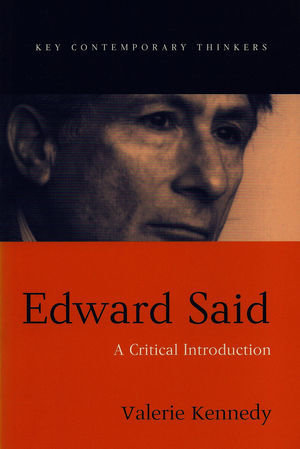Edward Said is one of the foremost thinkers writing today. His workas a literary and cultural critic, a political commentator, and thechampion of the cause of Palestinian rights has given him a uniqueposition in western intellectual life. This new book is a majorexploration and assessment of his writings in all these main areas.Focusing on Said's insistence on the connection betweenliterature, politics and culture, Kennedy offers an overview andassessment of the main strands of Said's work, drawing out thelinks and contradictions between each area. The book begins with anexamination of Orientalism, one of the founding texts ofpost-colonial studies. Kennedy looks at the book in detail, probingboth its strengths and weaknesses, and linking it to its sequel,Culture and Imperialism. She then examines Said's work onthe Palestinian people, with his emphasis on the need for aPalestinian narrative to counter pro-Israeli accounts of the MiddleEast, and his searing criticisms of US, Israeli, and even Arabgovernments. The book closes with an examination of Said'simportance in the field of post-colonial studies, notably colonialdiscourse analysis and post-colonial theory, and his significanceas a public intellectual.This book will be of great interest to anyone studyingpost-colonialism, literary theory, politics, and the Middle East,as well as anyone interested in Said's writings.

